Lupus is when the body's immune system mistakenly attacks itself. This results in the production of autoantibodies that target the body's cells, causing inflammation and damaging organs, leading to their malfunction.
Systemic lupus erythematosus is the most typical type of this illness. In addition, there are:
The inflammatory process caused by SLE can lead to damage to:
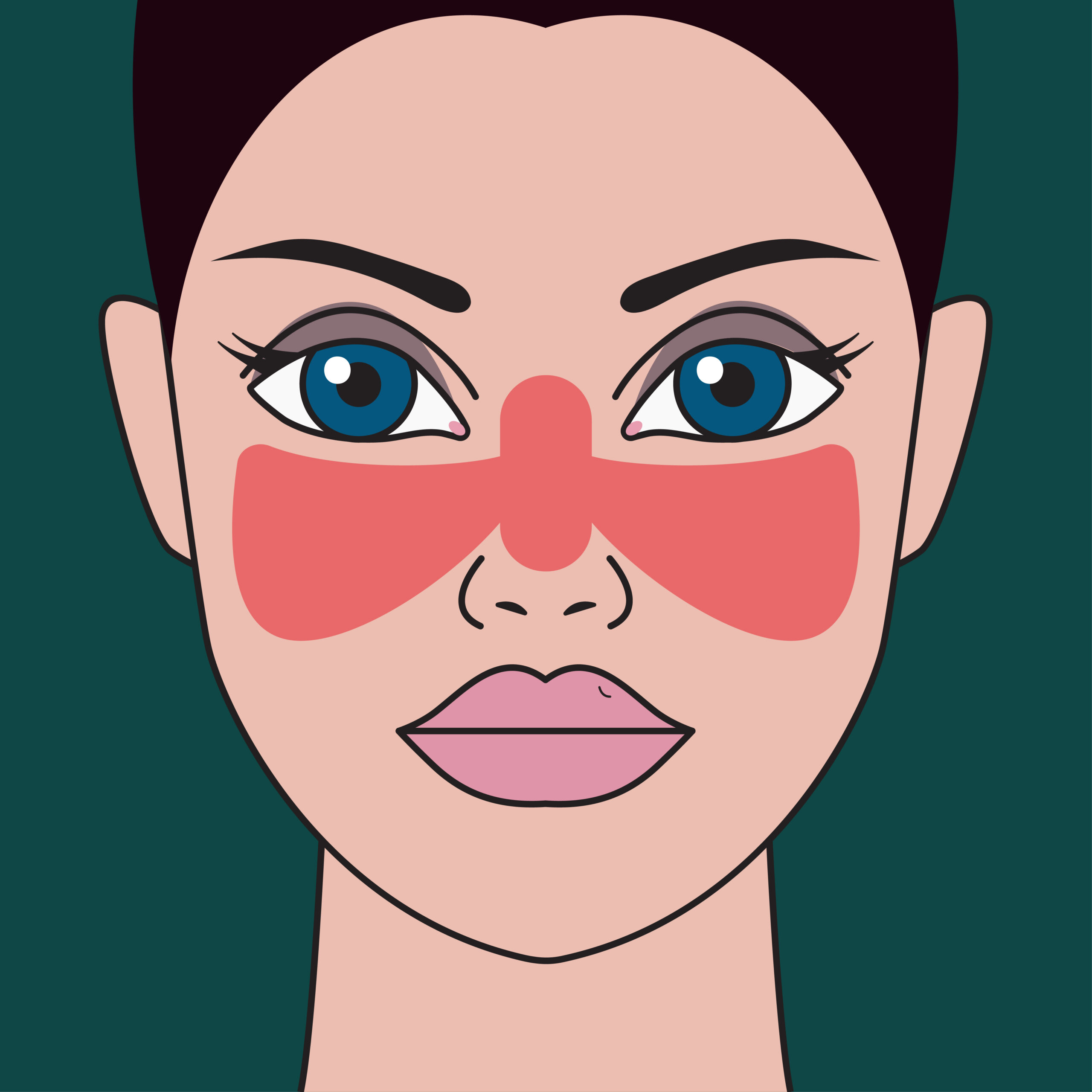
About 5 in 100,000 people in the US develop lupus each year. Any age group can be affected by the illness, but it is normally found in individuals between 15 and 45![]() . It is about nine times more common in women than in men. Black people and Native Americans are also more likely to get the disease.
. It is about nine times more common in women than in men. Black people and Native Americans are also more likely to get the disease.
It should be noted that the disease progresses very differently, depending on which organs are affected and to what extent. Most often, periods of exacerbation of the illness (flare-ups) alternate with remission (withdrawal) of symptoms. Appropriate treatment allows to reduce the number of exacerbations and prevent many complications.
The symptoms of systemic lupus erythematosus![]() are often non-specific (meaning they resemble those associated with other conditions).
are often non-specific (meaning they resemble those associated with other conditions).
Lupus is a systemic disease that affects multiple organ systems, and one of its most distinctive symptoms is a butterfly-shaped erythema on the face, though it does not always occur. The symptoms of SLE can be divided according to the organs they affect:
General symptoms include:
These are non-specific symptoms that can also occur in many other diseases. They are often the first symptom of the disease, and they also indicate its exacerbation.
Skin symptoms associated with the disease include:
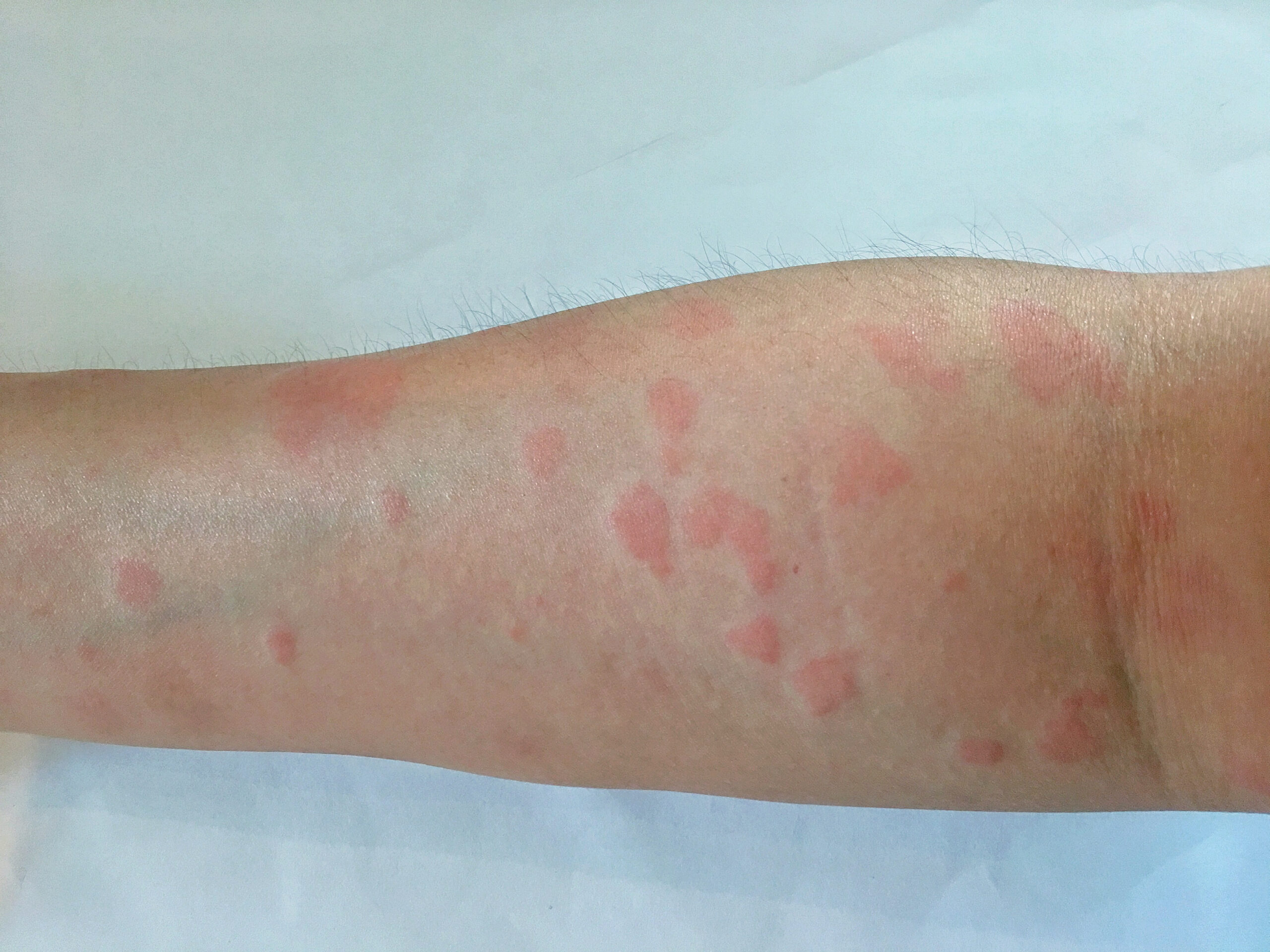
Lupus can cause arthritis, which is inflammation of the joints. Redness, soreness, and swelling of the joints may signal the inflammation associated with SLE. Worsening of those symptoms in the morning, called the morning stiffness of the joints, sometimes occurs.
Kidney inflammation is caused by the deposition of immune complexes in the kidneys. Kidney damage can cause a range of symptoms, depending on the severity of the damage. There may be hypertension, hematuria (blood in the pee), edema, or weight gain.
Changes in the nervous system: lupus can cause anxiety, headaches, vision problems, seizures, and mental disorders. A variety of neurological and psychological symptoms may occur in its course:
In people experiencing this disease, a common symptom is dry eyes or a sense of the presence of a foreign body in it associated with keratoconjunctivitis![]() – inflammation of the conjunctiva and cornea.
– inflammation of the conjunctiva and cornea.
The disease can be associated with a decrease in the amount of hemoglobin in the body (anemia), too few white blood cells (leukopenia), a reduction of the number of lymphocytes (lymphopenia), and a shortage of blood platelets (thrombocytopenia).
The disease increases the risk of developing heart disease and having a heart attack. Most often, it is caused by the accelerated development of atherosclerosis. Less often, it may be the result of hearts artery inflammation. A characteristic is inflammation of the endocardium (the innermost layer of the wall of the heart).
In addition, the disease promotes the development of atherosclerosis. Its accelerated progress is due to chronic inflammation, steroid use, and kidney disease associated with lipid disorders and hypertension. Complications of atherosclerosis (including heart attack, stroke) are among the leading causes of death in patients with SLE.
During SLE, inflammation of the pleura![]() (the chest lining) can occur. This causes chest pain and shortness of breath.
(the chest lining) can occur. This causes chest pain and shortness of breath.
It is associated with antiphospholipid antibodies presence, which often (in 30%![]() ) appears in lupus. These antibodies increase the tendency to form clots that block blood flow in the vessels. An important symptom of this syndrome is gynecological complications, including recurrent miscarriages – blood thinners are used to prevent them.
) appears in lupus. These antibodies increase the tendency to form clots that block blood flow in the vessels. An important symptom of this syndrome is gynecological complications, including recurrent miscarriages – blood thinners are used to prevent them.
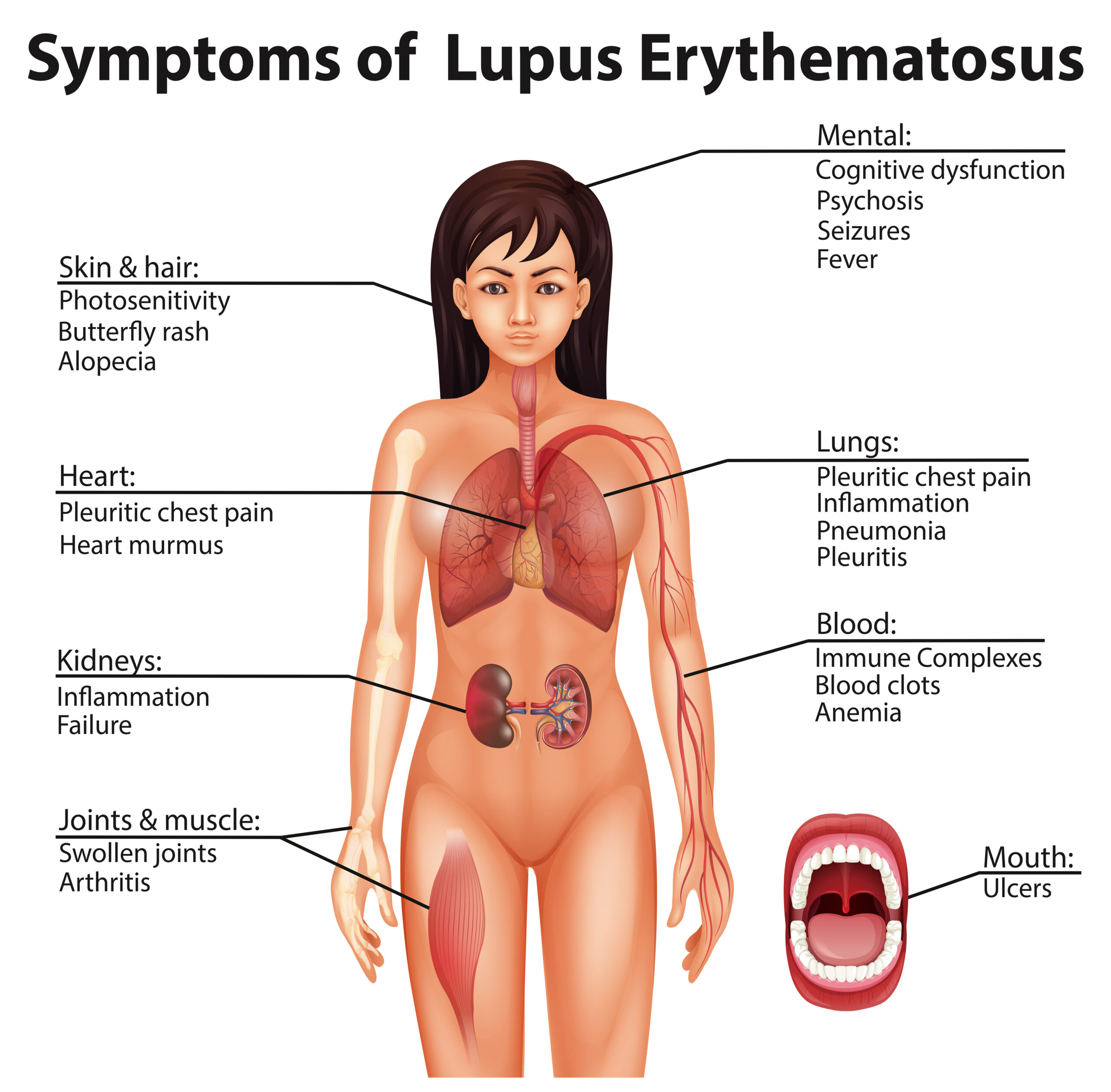
The causes of lupus are not fully known. However, it is known that the disease's development occurs among people genetically predisposed to it. Still, an additional factor is required to trigger the disease's onset.
Factors![]() that can trigger the disease include:
that can trigger the disease include:
Lupus can be difficult to diagnose. This is due to both the diverse and often unspecific symptoms and the fact that each case of the disease is different. In addition, lupus has flare-ups and remissions (periods when the symptoms of the disease subside).
In addition to the symptoms in the diagnosis, the doctor often performs specialist tests. The following tests![]() are used to diagnose the disease and assess its activity:
are used to diagnose the disease and assess its activity:
There is no single medication or cure for lupus. Therapy is treating the symptoms. Due to the high variability of the disease, treatment varies from person to person. SLE treatment![]() aims to achieve lasting remission of the disease as soon as possible, ease symptoms, prevent organ damage, and improve quality of life.
aims to achieve lasting remission of the disease as soon as possible, ease symptoms, prevent organ damage, and improve quality of life.
Lupus is treated with:
Fighting high blood pressure and maintaining an appropriate cholesterol level is essential to prevent cardiovascular complications. In people with kidney involvement, irreversible kidney damage and end-stage kidney disease require dialysis and consideration of kidney transplantation.
Patients are also advised to change their lifestyle![]() , such as:
, such as:
Since lupus is most often diagnosed in people aged 15-45, many are women of childbearing age. For this reason, the issue of fertility![]() is a significant topic to be considered when discussing this disease.
is a significant topic to be considered when discussing this disease.
Nowadays, women with SLE get pregnant and give birth to healthy babies. However, in certain situations, pregnancy can be a risk to the mother or fetus – these include kidney or heart disease in the mother, high disease activity, or the presence of certain types of antibodies. Also, some lupus medications can harm the fetus. Therefore, pregnancy should be planned appropriately so that conception occurs during the period of remission of the disease.
It is caused by particular antibodies in the mother's blood that cross the placenta and can cause symptoms of the disease in the child (about 2% of pregnancies![]() ). A rare but dangerous complication is a congenital heart disorder. Other possible symptoms include skin changes, jaundice, and a decrease in platelets, which usually disappear by the age of 6 months when maternal antibodies are washed out of the baby's blood.
). A rare but dangerous complication is a congenital heart disorder. Other possible symptoms include skin changes, jaundice, and a decrease in platelets, which usually disappear by the age of 6 months when maternal antibodies are washed out of the baby's blood.
A complete cure for lupus is currently not possible. However, the disease has periods of flare-ups and remissions.
It has a significant impact on a person's quality of life. Considering some general recommendations, you can return to regular activity in mild and moderate forms. Long-term medication is usually required to control the symptoms of the disease and prevent it from worsening.
Treatments in a hospital are necessary in cases of severe exacerbation of the disease.
Deaths in SLE patients are mainly attributed to heart diseases and sepsis.
If you develop symptoms of the disease, you should contact your GP. Lupus patients should be under the care of a specialist rheumatologist or immunologist. Sometimes it is necessary to cooperate with other specialists, such as nephrologists, dermatologists, neurologists, or ophthalmologists.
Some people need psychological help![]() . Being diagnosed with SLE is often associated with tremendous stress and anxiety. Most people with chronic illnesses experience those reactions. That's why it's essential to get specialist help and support if needed.
. Being diagnosed with SLE is often associated with tremendous stress and anxiety. Most people with chronic illnesses experience those reactions. That's why it's essential to get specialist help and support if needed.
If you have lupus, contact your doctor urgently if you notice:
According to the current medical knowledge, there is no way to prevent the development of lupus effectively.
Considering the factors that may be conducive to developing SLE, it seems reasonable to avoid excessive exposure to the sun and lead a healthy lifestyle.
Table of Contents

Inflammation is the body's defensive response to stimuli that damage its tissues. What are the symptoms of inflammation? Find out… read more »
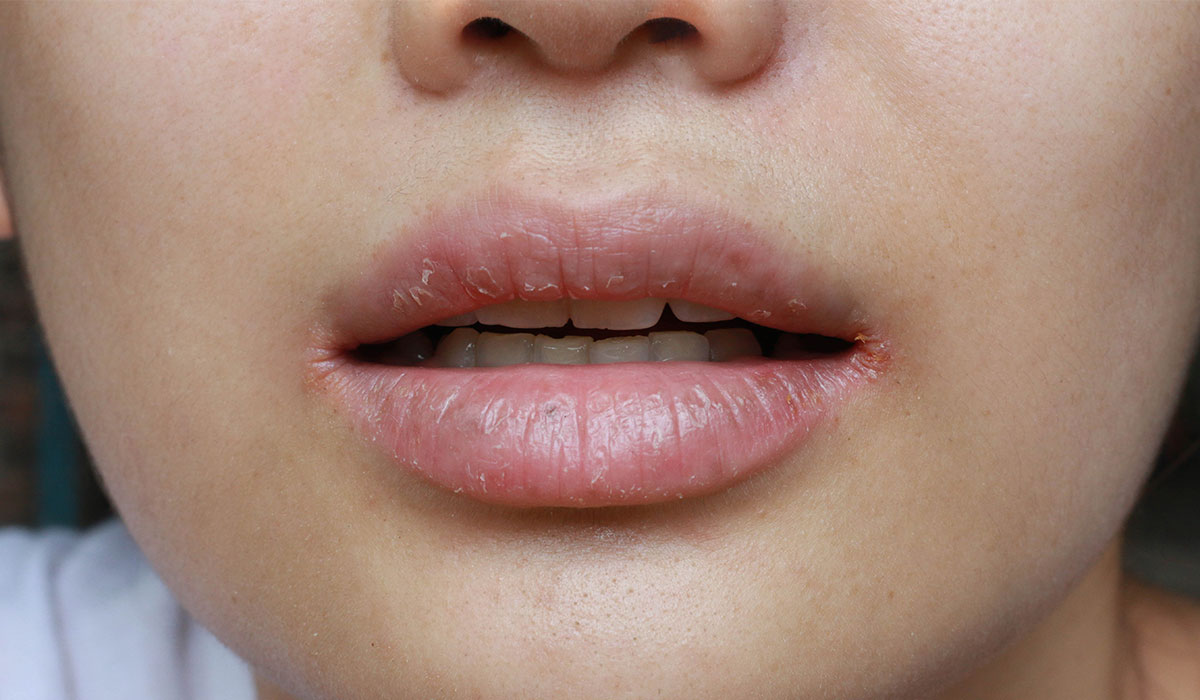
Sjogren's syndrome is an autoimmune disease that causes your white cells to attack healthy cells instead of protecting them. It… read more »
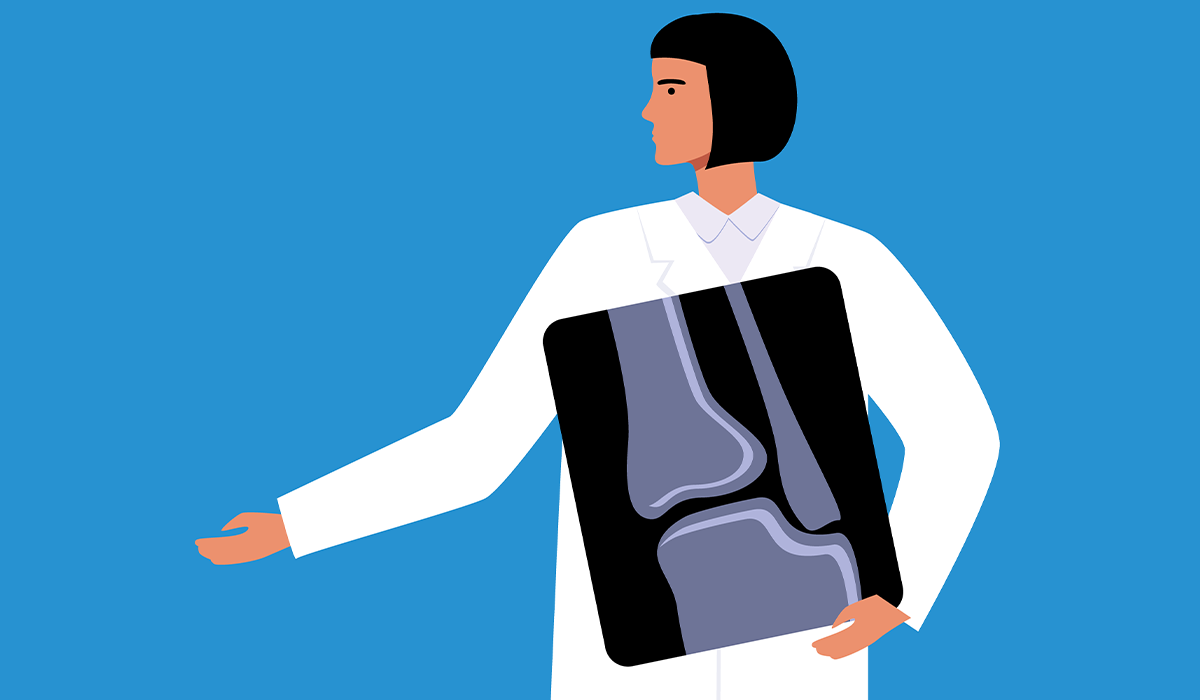
A rheumatologist is a doctor who specializes in rheumatic diseases, which are diseases of joints, muscles, and bones. What tests… read more »
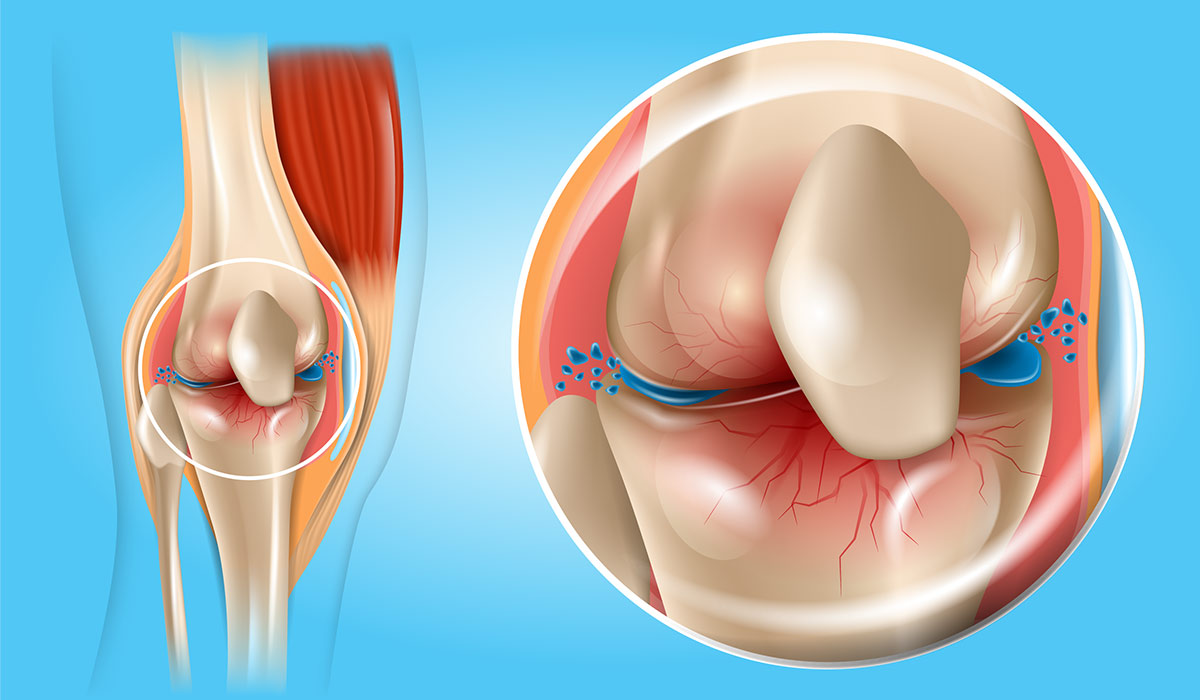
Osteoarthritis is a disease that most often affects children and the elderly. What are its causes? How can it be… read more »
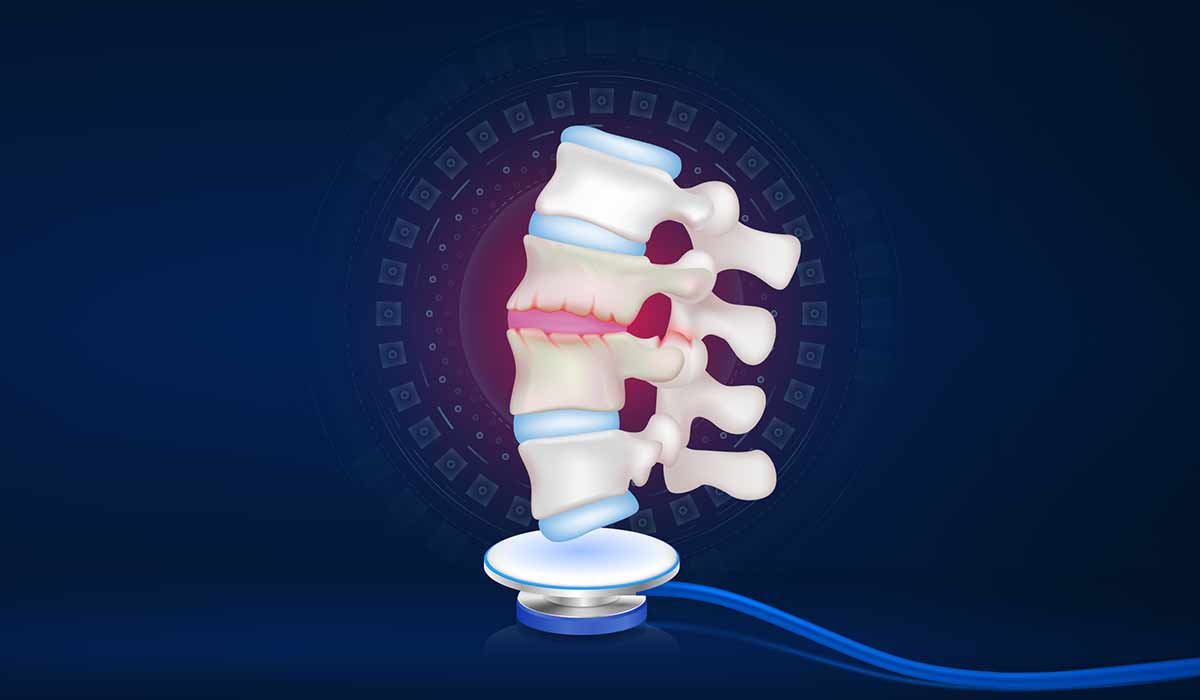
Ankylosing spondylitis (AS) is a chronic inflammation of the spine. How to recognize the onset of the disease? What to… read more »
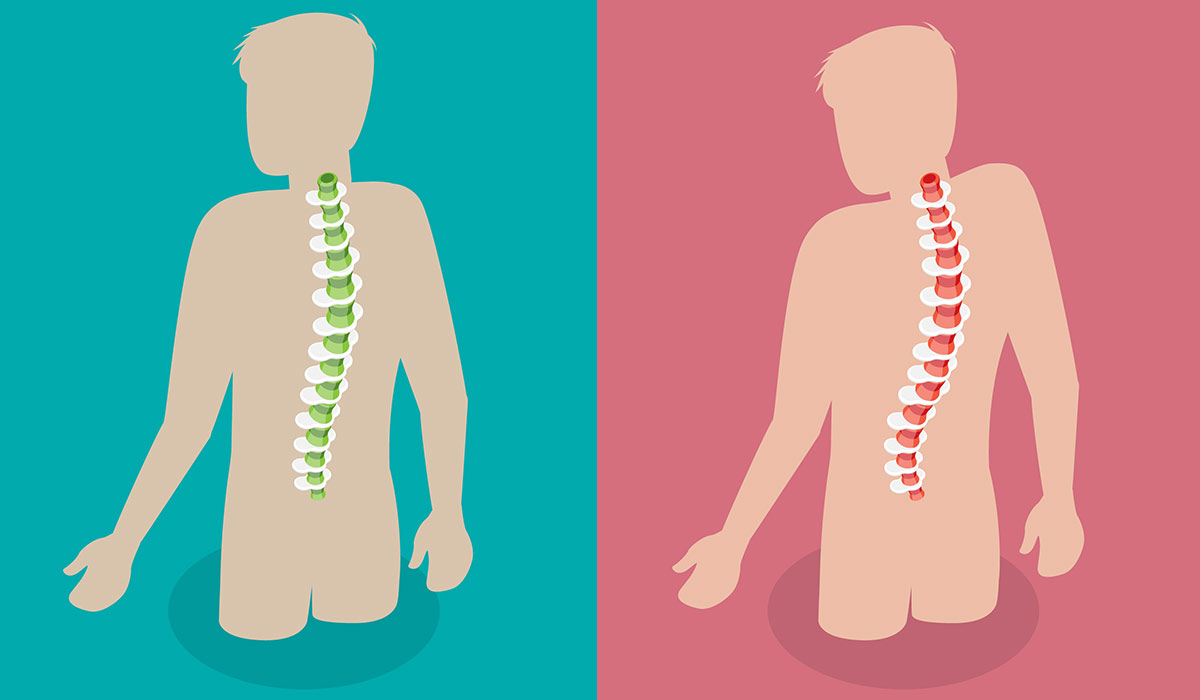
Scoliosis is a structural deformation of the spine that occurs in three planes. What are its causes and symptoms? What… read more »
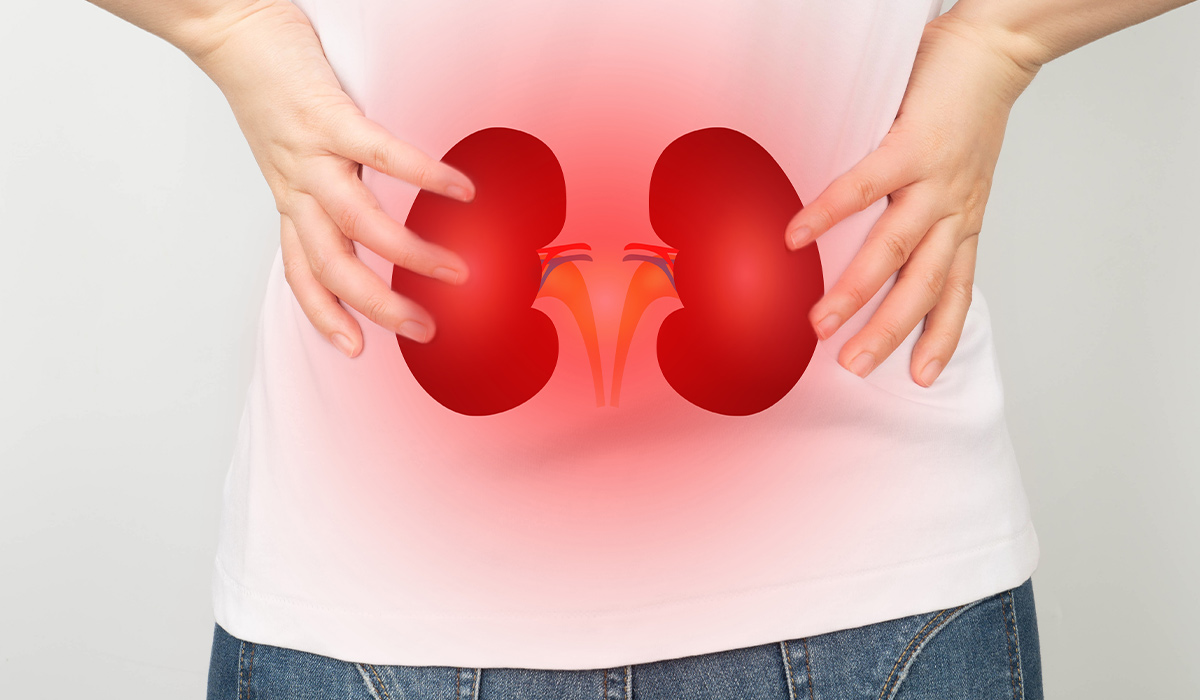
Kidney infections are a heterogeneous group of diseases characterized by inflammation of one or both kidneys. What are the symptoms… read more »

Kidney stones can form for a variety of reasons. Learn about factors that increase the risk of kidney stones. See… read more »
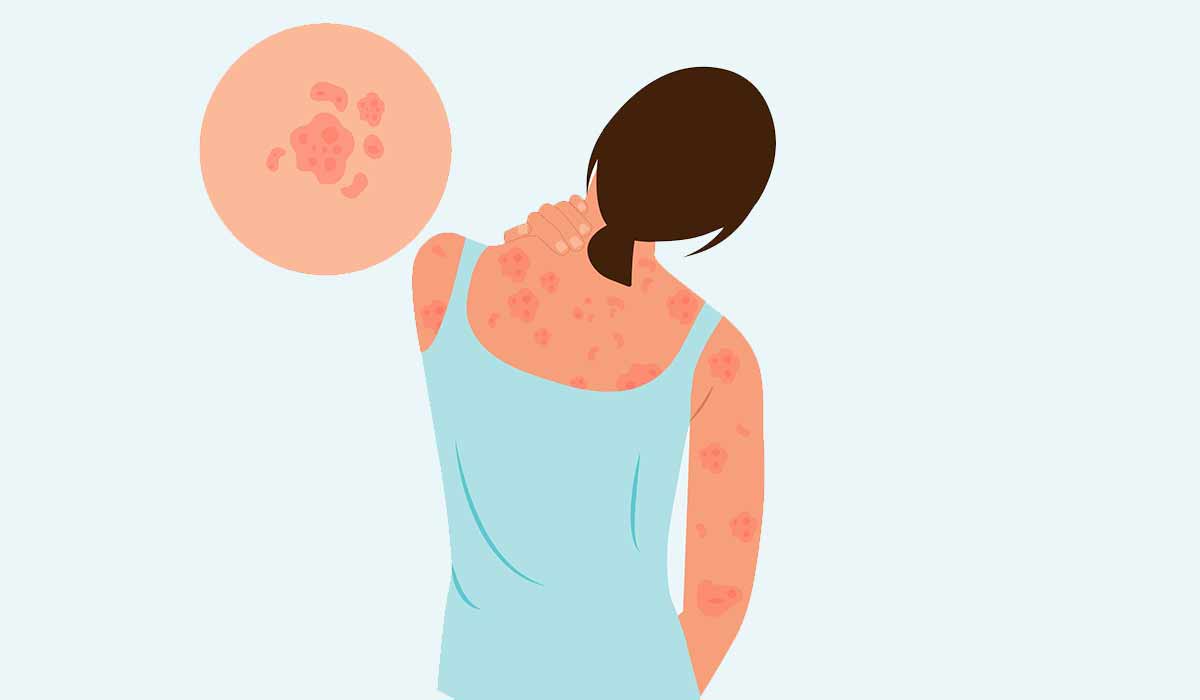
Psoriasis is characterized primarily by skin lesions that result from impaired epidermal regeneration. Learn about all types and signs of… read more »